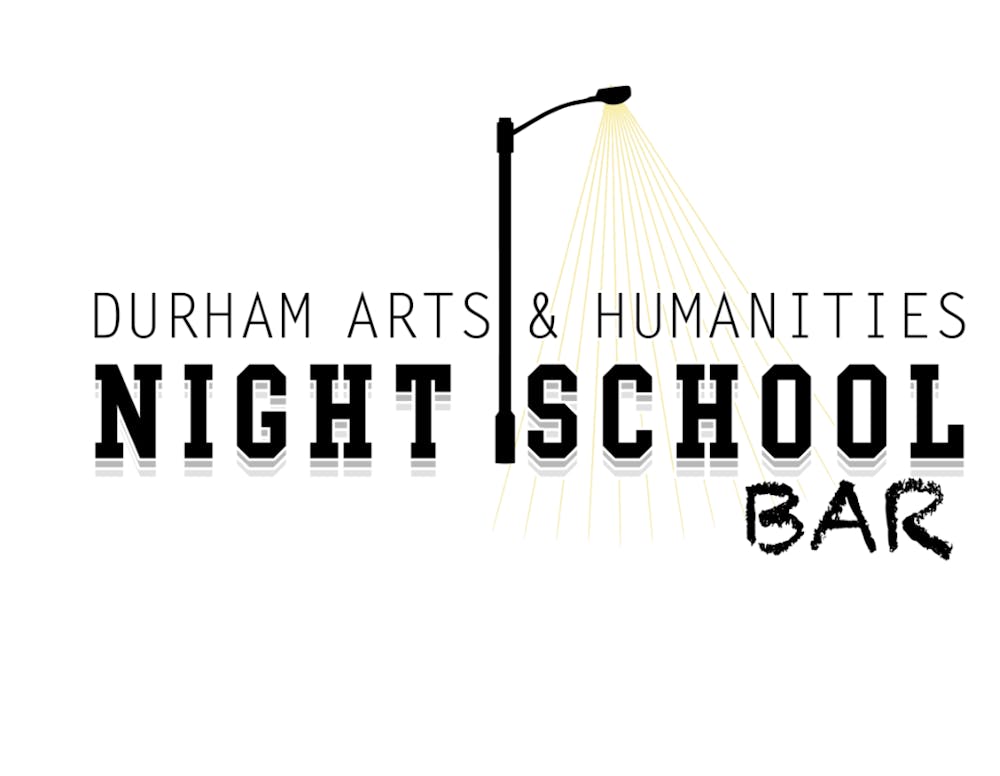As college students, our lives revolve around studying. Most of us are pursuing an undergraduate or graduate degree with ambitious dreams for our future careers and lives. But what alternative educational opportunities exist for anyone who ever feels that a typical college education is not for them or quite enough?
Durham’s Night School Bar and Since 4 Eva (S4E) School each offer unique and inexpensive arts and humanities classes for adults. Unlike traditional schooling, there are no grades, no prerequisites and no degrees, simply offering learning for its own sake. The “community” school model is perfect for anyone eager to explore niche interests in the arts and humanities but who don’t have room in their regular schedules to spare.
To Kym Register, who runs The Pinhook (one of S4E’s parent organizations, along with Northstar Church of the Arts) expressed the importance of community centered education.
“A community school is taught by the community for the community,” they said in an email. “S4E’s mission is deconstructing the falsehood that academia is the only valid form of expertise or education. People also need to learn from each other!”
Lindsey Andrews, Ph.D., director of Night School Bar, first got the idea for Night School Bar while interacting with customers at her downtown Durham bar, Arcana.
“It just really occurred to me that there is a huge intellectual and artistic community here that is jonesing for a chance to get to study together,” Andrews said.
Assistant director Annu Dahiya, Ph.D. has students in their 20s, senior citizens and everyone in between. The community school model allows for anyone to participate, no matter their background.
“Students come from all walks of life. They work in many different career fields… It really changes what we can talk about in the classroom because there’s just more lived experience to bring to the table,” Dahiya said. “And I think that is something that all the students enjoy, but I think particularly [the] undergrads.”
Dahiya’s undergraduate students tend to gravitate towards courses about Black studies or race studies in general, with a number registering for her four-week seminar on feminist philosopher Angela Davis.
This month, Dahiya is teaching a theory seminar Black Feminism & the Human seminar will feature several works by theorists specializing in Black studies, including Davis.
Despite their counter-institutional stance, S4E and Night School Bar are run by experienced educators. Andrews and Dahiya have experience teaching at universities, so they are intimately aware of the difference between college education and a community-run school education. They published a scathing critique of the traditional university model, presenting Night School as “one alternative model to higher education, creating a more equitable space to study together.”
Both Andrews and Dahiya earned their doctorates at Duke. Andrews first began questioning the value of the university as a Duke graduate student, when she began working with poet-theorist Fred Moten, known for his critique of the university in his book “The Undercommons.”
“Both Moten and the students who were working on the special issue [of Polygraph, a journal from Duke’s Literature department] were really posing the question of whether or not the university even has a space for students anymore, if study is really what people go to the university to do,” Andrews said. “The role of the university and what it means to be a student in it is changing.”
So what exactly do these schools have to offer? Night School is offering five courses this month, including Black Feminism & the Human, and a whole new slew of classes in May and June. These courses are all taught online, last either four or six weeks for about two hours each week and are pay-what-you-can.
“Part of the mission of Night School is to not be exploitative, to not be expensive and to make study accessible to all,” Andrews said.
S4E is not offering courses right now, but courses offered in March 2021 included Drag Make Up 101 and Creative Psychiatric Advanced Directives, two classes Register recommended. All S4E courses cost a minimum of $25 - very reasonable, especially considering Duke tuition. In addition to established classes, both schools accept proposals for course ideas — either to teach or to take.
Both Night School and S4E are currently virtual. Night School was originally intended to be a school-bar hybrid, but COVID-19 forced Andrews and her team to postpone plans to open a brick-and-mortar location. However, the online platform may have been a blessing in disguise.
“One major benefit of [online classes] is that we have people from not just all over the country but all over the world,” Andrews said “Currently, I’m teaching a class that has people calling in from Oakland, Australia and Durham.”
They hope to open the physical location this year, but online classes will likely continue. Unlike Night School, S4E was actually inspired by the pandemic.
“We wanted to find a way to pay artists and keep each other connected,” Register wrote. They hope to offer more online classes soon.
“Education doesn’t have to be a mere step on the ladder to whatever lofty life plans you may have. School is more than institutionalized education,” Register wrote. Learning through Night School orS4E gives you the freedom to engage with material that you care about — to learn for the sake of learning.
Get The Chronicle straight to your inbox
Sign up for our weekly newsletter. Cancel at any time.

